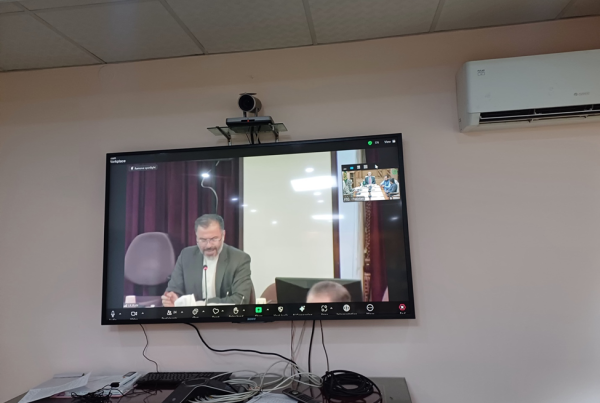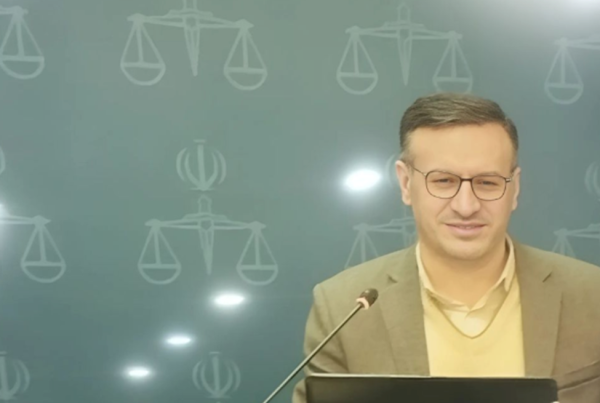
Kick starting its training sessions, OICOA offered its first session to the member institutes by Dr. Fayyaz Ahmed Ranjha, a Senior Bureaucrat of Pakistan, who presented a profound training session that resonated with the core values of Islamic teachings. His session, hosted by the OICOA, was a journey into the heart of Islamic jurisprudence and its application in the realm of public service and ombudsmanship.
At the outset, Dr. Ranjha emphasized the intrinsic link between Islamic teachings and the principles of justice. Islam, a religion that encompasses all aspects of life, places immense importance on justice, as reflected in the teachings of the Quran and the life of the Holy Prophet Hazrat Muhammad.
Dr.Ranjha eloquently highlighted how these teachings provide a robust framework for the administration of justice and the resolution of conflicts, principles that are fundamental to the role of an ombudsman.

Citing the Quranic verses, Dr. Ranjha brought to light the profound emphasis Islam places on fairness and equity. He cited Surah An-Nisa (4:135), which underscores the importance of standing firmly for justice, even if it goes against one’s interests or those of kin. This principle, he argued, is the cornerstone of an effective ombudsman’s office, which must serve as an impartial arbiter, free from personal biases and external influences.
The life of the Holy Prophet Hazrat Muhammad, as Ranjha illustrated, is replete with examples of justice and fair dealing. He narrated incidents from the Prophet’s life, demonstrating how he resolved disputes and grievances with a deep sense of fairness, compassion, and wisdom. These historical anecdotes serve as a guiding light for ombudsmen, showing how empathy and ethical integrity are vital in addressing the concerns of the public.
Moving from Islamic teachings to practical ombudsmanship, Ranjha outlined how an ombudsman’s office should function in a principled manner. He stressed the importance of transparency, accountability, and responsiveness in handling public grievances. An effective ombudsman, as per Ranjha’s vision, is not just a complaint resolver but a proactive advocate for the people, ensuring that their rights are protected and their voices heard.
Dr. Ranjha also touched upon the challenges faced in contemporary ombudsmanship, particularly in dealing with bureaucratic inertia and systemic issues. He emphasized the need for ombudsman offices to be empowered with the necessary authority and resources to effect meaningful change. Moreover, he highlighted the role of technology in enhancing the efficiency and reach of these offices, making them more accessible to the public.
The session was a masterclass in integrating timeless Islamic principles with modern administrative practices. Ranjha’s discourse underscored the idea that the essence of good governance and effective ombudsmanship lies in adhering to the values of justice, fairness, and compassion – values deeply rooted in Islamic teachings.
As the session concluded, the attendees were left with a renewed understanding of the profound impact that Islamic principles can have on public administration and conflict resolution. Dr. Fayyaz Ahmed Ranjha’s insightful training not only illuminated the path for current and aspiring ombudsmen but also served as a reminder of the universal and timeless relevance of Islamic teachings in fostering a just and equitable society.
In summary, Dr. Ranjha’s training session was a beacon of knowledge, guiding the way towards a more principled and effective approach to ombudsmanship, deeply anchored in the rich traditions of Islamic jurisprudence. It was a testament to the power of integrating spiritual wisdom with practical governance, paving the way for a more just and harmonious world.







